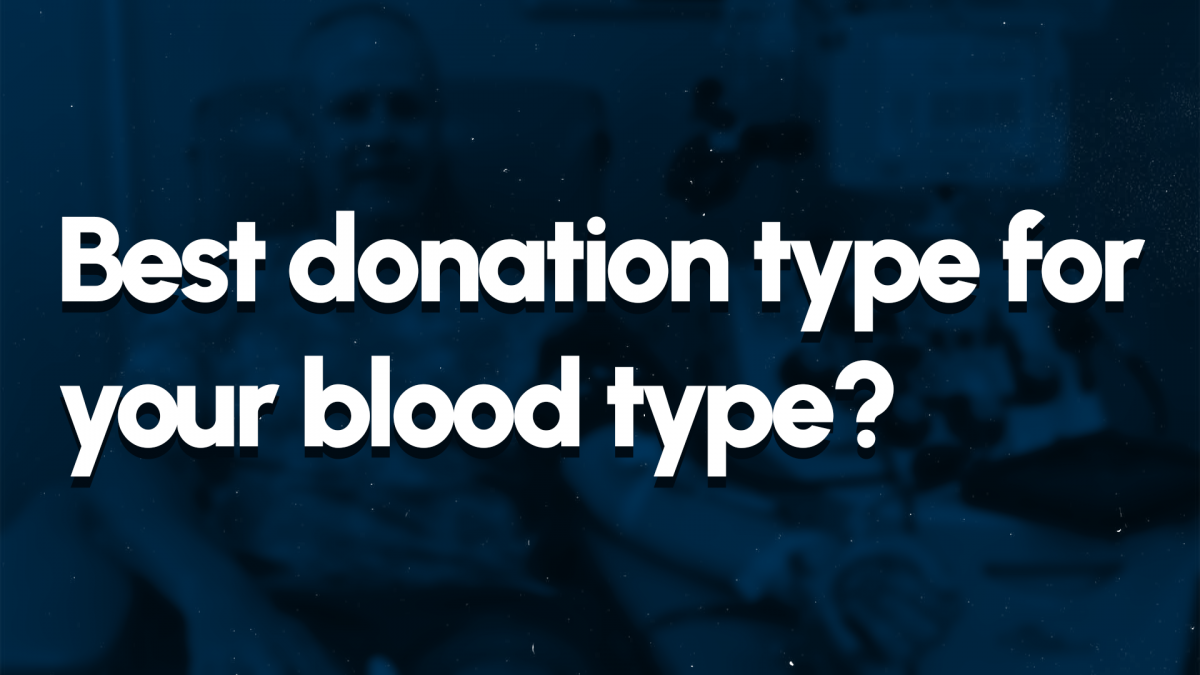Are you curious about the ideal donation for your blood type? We Are Blood is here to help find your perfect match! We welcome donors for whole blood, platelet, plasma, and double red cell donations. Let us help you determine which donation type is best for you!
True or False? All blood donations are the same.
False! Depending on our current supply and demand, we may need higher quantities of one donation type over others. The most common type of blood donation is whole blood. This process takes approximately one hour from start to finish, during which donors complete a health history questionnaire, a mini-physical, and give a pint of blood. After donation, whole blood is separated into three components. These components – red cells, plasma, and platelets – will be used in transfusions for local patients in need. Just one whole blood donation can significantly impact multiple lives in your community!
The second type of donation we collect is platelet donation. Platelets are the part of your blood that helps with clotting. They have a very short shelf-life of 7 days, so we are in constant need of platelet donations. Platelet donations help cancer patients, surgery and trauma patients, pediatric transplant patients, and mothers and newborns.
The third donation type is double red cell donation, a process in which you are able to donate twice the red blood cells in half the time. Because of the volume of blood donated during this process, donors are only allowed to participate once every 16 weeks. We Are Blood requires an average of 200 donations daily to maintain an adequate supply and needs contributions of all three donation types!
The last donation type we collect is plasma, A single plasma donation can provide multiple units to local patients in need. While it takes longer than a whole blood donation, it can be donated more frequently – every 28 days, in fact! It can also make the difference between life and death during emergencies, so local hospitals rely on our We Are Blood donors to help.
Different donations. Different blood types.
Blood type is genetic and inherited. It is determined by the presence or absence of the A and B antigens in the blood. The positive or negative factor comes from whether a protein called Rh factor is present. This combination creates the names of the 8 most common blood types: A+, A-, B+, B-, O+, O-, AB+, AB-. There are also hundreds of other antigens that can be present in blood and lead to rare blood types.
Knowing one’s blood type is important because receiving the wrong type of blood would introduce foreign antigens into your body, which could trigger a patient’s immune system to attack the transfused blood. Careful blood typing and cross-matching is required during blood donation and transfusion to ensure safety for all recipients.
Do you know your blood type? No worries if you don’t, our lab does blood typing and thorough blood testing after each donation.
Which donation is best for your blood type?
Now that we know the difference between donation types and blood types – which donation is best for you so that you can make the biggest impact?
The universal donor type is O-, which means their red cells can be transfused to patients with any blood type. O+ red cells can be transfused to any patient with a positive Rh factor, so nearly 80% of the population. Since people with type O blood can donate red cells to many blood types, the most common donations for these individuals are whole blood, while individuals with A+, B+, AB+ & AB- blood are especially valuable for platelet donations. AB donors are also frequently asked to donate plasma, because it can be given to patients of any blood type. AB blood type is rare, making up only 4% of the U.S. population, so AB plasma donors play an integral role in helping doctors provide care for trauma patients.
Our blood supply can vary by the day, which means our donation type needs can vary greatly as well. Please reach out before your appointment to inquire which type of donation is in highest demand and if you fit the criteria!
More information on types of donations, blood typing, and which donation is best for each blood type, visit us here.


